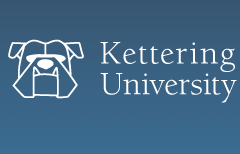Motivating Student Learning Using Biofuel-based Activities
Document Type
Technical Paper
Publication Date
6-23-2013
Publication Title
ASEE Peer
Conference Name
2013 ASEE Annual Conference & Exposition
Abstract
Developing Student Understanding of the Opportunities and Challenges of Bio-fuels. Meeting the energy needs of the nation and the world is becoming increasingly difficult in the face of escalating demand and dwindling supply. Developing renewal sources of energy is critical for keeping economic engines turning and to allow standards of living to increase. One option is to develop bio-fuels such as biodiesel and biogas (or more specifically bio-methane). Bio-fuels can be produced from a wide variety of renewal materials. Developing the technology to produce and utilize bio-fuels is truly a multidisciplinary project, involving chemists to understand the fundamental chemical processes, chemical engineers to efficiently produce the bio-fuel, mechanical engineers to understand the affects of using bio-fuel in conventional engines, and mathematicians to aide with developing predictive models. At XYZ University undergraduate students are developing an understanding of the challenges in developing bio-fuel as a renewable source of energy though the undergraduate cooperative education program, undergraduate research opportunities, and through classroom activities. For example in a course on sustainability students use green chemistry principles to produce bio-diesel in a chemistry lab and then test the fuel in a gas turbine in a mechanical engineering lab. As another example, collaboration between a green energy startup company, the city government, and the university is providing opportunities for undergraduate co-op students and undergraduate research assistants to help develop the technology to convert municipal waste into biogas. In the production of biogas, chemistry and chemical engineering students evaluate potential substrates for implementation in anaerobic digestion. The students complete biological methane potential testing, small scale reactor evaluation, and analytical tests to determine the process parameters for anaerobic digestion. Current student projects include: the development of an algae bio-refinery, using hospital post consumer food waste as a substrate, evaluating soybeans as a substrate, and wetland invasive species. In addition, the students are implementing the ADM1 model and working with industry on biogas separation membranes. More recently, mechanical engineering undergraduate and graduate research assistants have begun to study the effects of using bio-methane in automobile engines. One approach was to convert a pickup truck with a gasoline engine to run on compressed natural gas as a prelude to testing the vehicle running on bio-methane. Future work will focus on the effects of biogas on fuel economy and emissions. A parallel study will use a computational approach to understand how to reduce the amount of chemical processing required to prepare bio-methane for use in an automotive engine; and hence reducing the cost of the fuel. Through all of these activities, students are coming to understand the opportunities and challenges associated with the development of bio-fuels. This paper will describe in more detail the approaches that were used and the lessons learned.
Rights Statement
© American Society for Engineering Education, 2013
Recommended Citation
Hoff, Craig; O'Toole, Matthew; Davis, Gregory W.; Nartker, Steven; and Aurandt, Jennifer, "Motivating Student Learning Using Biofuel-based Activities" (2013). Mechanical Engineering Presentations And Conference Materials. 150.
https://digitalcommons.kettering.edu/mech_eng_conference/150
DOI
10.18260/1-2--19019

